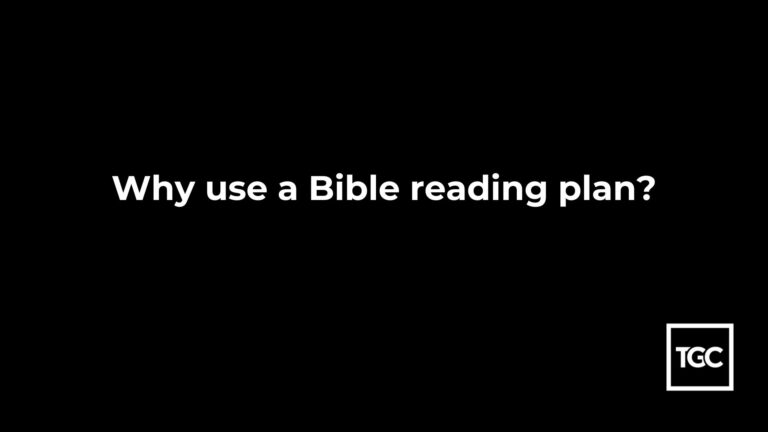Over the years D.A. Carson has been incredibly kind to TGC Canada in general and to me in particular. As most readers will know, Don was born in Montreal and spent his entire childhood in the Province of Quebec. He went to seminary in Toronto, Ontario, and pastored churches in multiple Canadian Provinces before finally taking up residence as a scholar in Cambridge, England, and later in Chicago, Illinois. As such, though it has been more than 30 years since Don Carson called Canada home, he continues to make an effort to encourage and support Canadian pastors.
Back in 2015 when a small group of us were thinking of starting something “TGC like” here in Canada, Don met with us on multiple occasions to provide much-needed wisdom and counsel. He continued to consult with us, giving generously of his time, over the next 2 years as our plans and platform developed. The generosity of TGC USA to us in terms of their web technology and expertise has been invaluable! But even more than that, Don was very intentional about speaking into our essential DNA as an organization. I recall one conversation that he had with myself and another writer. He said:
“Anyone writing under the auspices of TGC – be it the American or Canadian expression – needs to be committed to two fundamental values: conviction and civility. There is plenty of uncivil conviction and also a fair bit of conviction-less civility within the wider evangelical world, but under our banner we are committed to holding those two things together in everything we do and publish.”
That stuck with me and I know he had the same conversation with several other members of our founding committee.
Convictional and civil. That is the Carson Rule and it continues to exercise editorial authority over absolutely everything that we publish through our website.
Over the years I’ve been blessed to overhear some further commentary on that rule from the author himself. I remember having dinner with Don, and a few other TGC Canada Council members shortly after TGC USA had hosted the MLK50 event in 2018. It had been a risky venture, remembering and celebrating the contributions of such a personally flawed, though heroic and culturally important character. On the whole, I think it was worth it. Carson saw the unexamined racism within large swaths of American evangelicalism as something that needed to be challenged. He was right. But that courage and discernment came at a remarkably high price.
The criticism that he received may have been convictional, but precious little of it was civil in nature. In fact, it was reading such criticism, levelled at one of the best men I have ever been privileged to know, that started to sour my take on American evangelicalism as a whole. Any movement that could produce, foster, and affirm that kind of vitriol toward that kind of man had some serious underlying flaws. But to hear him talk about the people who were so maliciously and unfairly abusing him was incredibly instructive. He did not agree with them, he did not apologize for his stance, but neither did he abuse them or caricaturize them unfairly in return. He was civil and convictional even under fire.
Those two conversations, two years apart; one theoretical and one very much applied, have shaped my approach to blogging and to pastoring in general and they have soaked into the DNA of TGC Canada as a whole.
To be clear, I am not saying that I reflect those commitments perfectly – I am saying that I agree with those commitments entirely.
Of course those are two very different things.
I recently had an article rejected by our Chief Editor at TGC Canada because it did not measure up to our agreed-upon standard; or at least, the title didn’t. I liked it. It was catchy, and clicky – but also undeniably critical. The content was good. It was about how Canadian pastors need to spend a little less time obsessing over American politics. I think that message needs to be heard, but I need to find a “Carson way” of re-working the title.
I share that simply to illustrate that the Carson Rule is more than a little chafing on my natural personality.
Good.
My natural personality requires a certain bit of chaffing. By nature I am more pugnacious and less considerate than I should like. The Carson Rule has served me well and I am sharing it here in the hopes that others will find it similarly useful.
There has been a remarkable decline in charitable discourse within the evangelical community over the course of my pastoral career. I’m sure at some point a qualified historian will analyze all the various factors and influences that have played a role in that, and I imagine when that task is done, the role of the internet and social media will feature prominently. Theological discourse use to happen slowly – one ponderous paper at a time. Now it happens at the speed of light, 280 characters at a time. At that pace and under such conditions, it appears that the principle and ethos of passages like James 1:19-20 no longer applies:
“Know this, my beloved brothers: let every person be quick to hear, slow to speak, slow to anger; for the anger of man does not produce the righteousness of God.” (James 1:19–20 ESV)
Fast is the order of the day. Loud is the style of the hour. Anger is just another word for courage. So it is – or so it seems in the internet era.
Against this general backdrop the Carson Rule can seem like a drag. Clicks have to be sacrificed for kindness. Dunks must be set aside in favour of reasoned appeal. It is a hindrance to the natural instinct and it is at odds with the spirit of the age, but that is precisely why I think it worthy of much wider embrace within the Christian community.
To be clear, the Carson Rule does not forbid serious and even strenuous disagreement on important issues, rather it forbids slander, exaggeration and ad hominem attack. Over the last 25 years I’ve observed D.A. Carson as he engaged in numerous theological disputations on a variety of significant issues, but I don’t recall ever seeing him resort to mockery, defamation or disrespect. His critique could be penetrating – even devastating – but it was never personal or malicious and it was always rooted in the biblical text. The Carson Rule doesn’t make us weak, it makes us kind. Or at least, it is intended to.
As the evangelical consensus disintegrates and as the remnants of cultural Christianity metastasize, occasions for debate inside the church and outside in the Public Square are sure to multiply. As followers of Jesus Christ engage in these conversations it is absolutely critical that we do so with conviction and civility as our general rule. Not because D.A. Carson says so, but because the Bible says so:
“Have no fear of them, nor be troubled, but in your hearts honor Christ the Lord as holy, always being prepared to make a defense to anyone who asks you for a reason for the hope that is in you; yet do it with gentleness and respect, having a good conscience, so that, when you are slandered, those who revile your good behavior in Christ may be put to shame.” (1 Peter 3:14–16 ESV)
Thanks be to God, we have witnessed a great awakening of young men and women who want to live their lives under the Lordship of Jesus Christ They have no fear! They are willing to speak the truth and they are eager to make an argument before friends, neighbours and Caesar himself if necessary – but oh, that they would do it with gentleness and respect!
There is no biblical justification for rudeness or dishonour in our discourse, particularly when engaging with civil authority. Those who hold the deepest convictions about the Lordship of Jesus and the authority of Scripture ought to be correspondingly committed to civility and submission, after all, the Bible says:
“Remind them to be submissive to rulers and authorities, to be obedient, to be ready for every good work, to speak evil of no one, to avoid quarreling, to be gentle, and to show perfect courtesy toward all people.” (Titus 3:1–2 ESV)
How can we argue for the Lordship of Jesus Christ in all areas of life, when we are in open rebellion against things said by the Spirit of Christ through his Holy Apostles? Do not our friends and neighbours rightly point out our hypocrisy?
Even the Apostle Paul, who had undeniable conviction and intellectual courage, was very careful to hold himself to a standard of civility in his public discourse. Perhaps the most instructive example of this comes from his sham of a trial before the Jewish Sanhedrin in Jerusalem. Acts 23:1-5 says:
And looking intently at the council, Paul said, “Brothers, I have lived my life before God in all good conscience up to this day.” 2 And the high priest Ananias commanded those who stood by him to strike him on the mouth. 3 Then Paul said to him, “God is going to strike you, you whitewashed wall! Are you sitting to judge me according to the law, and yet contrary to the law you order me to be struck?” 4 Those who stood by said, “Would you revile God’s high priest?” 5 And Paul said, “I did not know, brothers, that he was the high priest, for it is written, ‘You shall not speak evil of a ruler of your people.’” (Acts 23:1–5 ESV)
David Peterson says here:
“Compared to the Roman officials in 22:22-29, the leaders of Israel had treated Paul badly, dismissing his case without proper investigation and condemning him without proof. In so doing, they were violating the very law they professed to uphold”[1]
Paul was right to point out the injustice and irregularity of the proceedings, but whether due to his allegedly poor eyesight, or to some other unrevealed factor, Paul did not recognize who it was that had spoken to him, and when he was told that he had spoken thus to the High Priest, he immediately apologized, citing Exodus 22:28. Peterson goes on to say:
“Paul expresses respect for the office of high priest, even if he is critical of the behaviour of the one who currently holds the position.”[2]
Christians today, particularly in Canada, need urgently to recover this Pauline balance. We can be critical of the decisions being made and the processes being observed or not observed, but we must never allow ourselves to become openly hostile or disrespectful toward our leaders.
It is simply and undeniably sub-Christian.
The Apostle Paul’s censure of his own outburst in court is in perfect harmony with his inspired teaching in Romans 13:7:
“Pay to all what is owed to them: taxes to whom taxes are owed, revenue to whom revenue is owed, respect to whom respect is owed, honor to whom honor is owed.” (Romans 13:7 ESV)
Peter encouraged his people in a similar direction. He said:
“Honor everyone. Love the brotherhood. Fear God. Honor the emperor.” (1 Peter 2:17 ESV)
It is helpful to see those various charges communicated together because it is often love for the church and reverence for the Lord that is used as an excuse for incivility toward the government in contemporary evangelical discourse.
Nonsense.
If we believe what we believe about the Bible, and if we believe what we believe about the doctrine of inspiration, then when the Apostle Paul writes or when the Apostle Peter writes – then it is the Lord Jesus Christ who is speaking with authority to his church. Therefore, according to Jesus, respecting and honouring the government is part of what it means to follow him.
We need to be convictional and civil in everything we say and write and Tweet both inside the church and out in the Public Square.
Call it the Carson Rule, call it The Pauline Rule, call it the Petrine Rule or simply call it Christianity. Whatever you want to call it, we need to bring it back in a hurry.
Lord help!
SDG,
Pastor Paul Carter
To listen to the most recent episodes of Pastor Paul’s Into The Word devotional podcast on the TGC Canada website see here. You can also find it on iTunes. To access the entire library of available episodes see here.
[1]David Peterson, The Acts of the Apostles, Pillar New Testament Commentary. Accordance electronic ed. (Grand Rapids: Eerdmans, 2009), 614.
[2]David Peterson, The Acts of the Apostles, Pillar New Testament Commentary. Accordance electronic ed. (Grand Rapids: Eerdmans, 2009), 615.
















